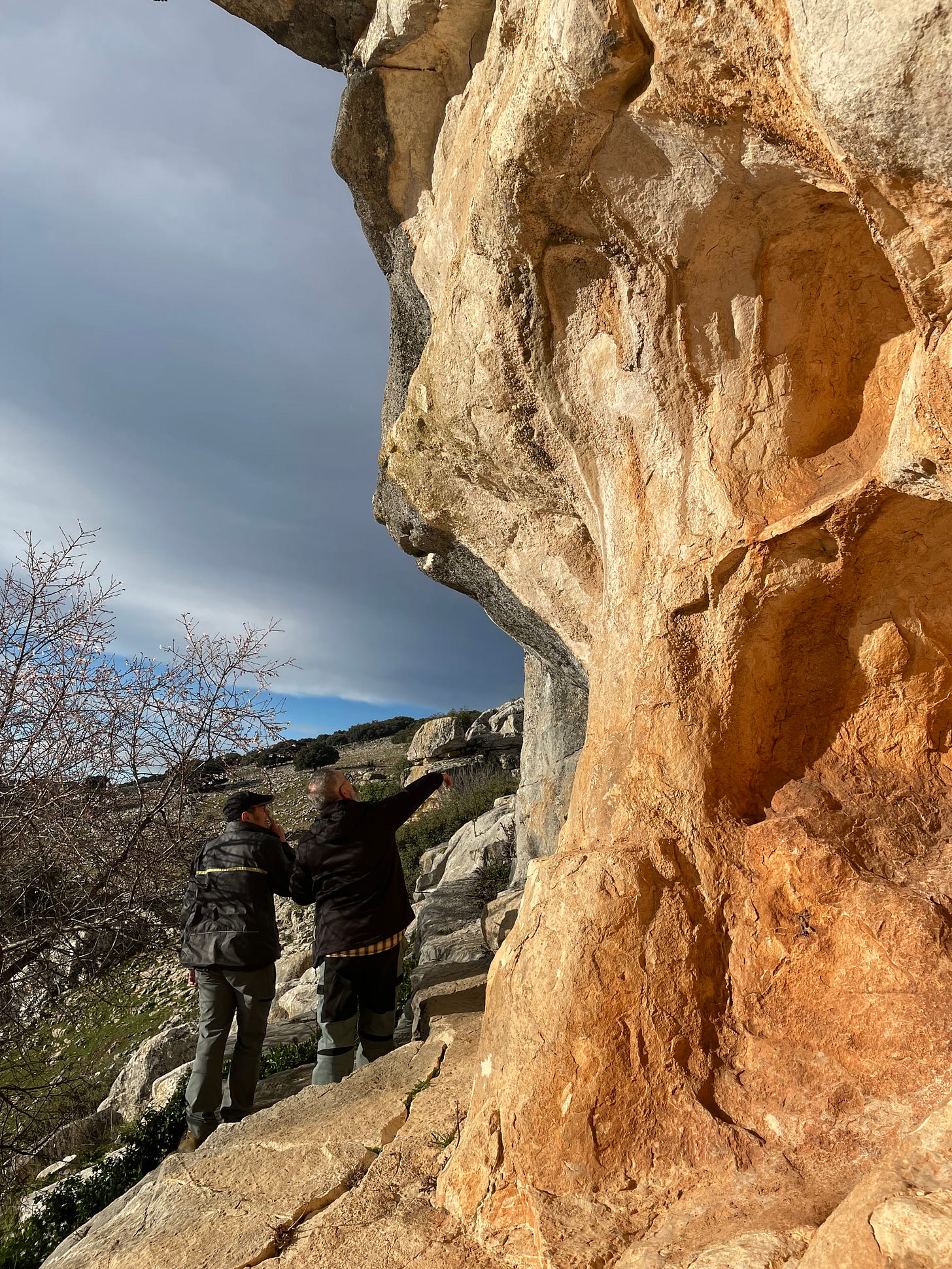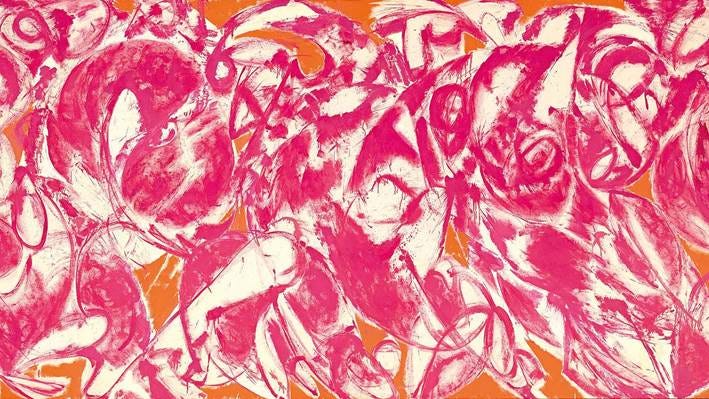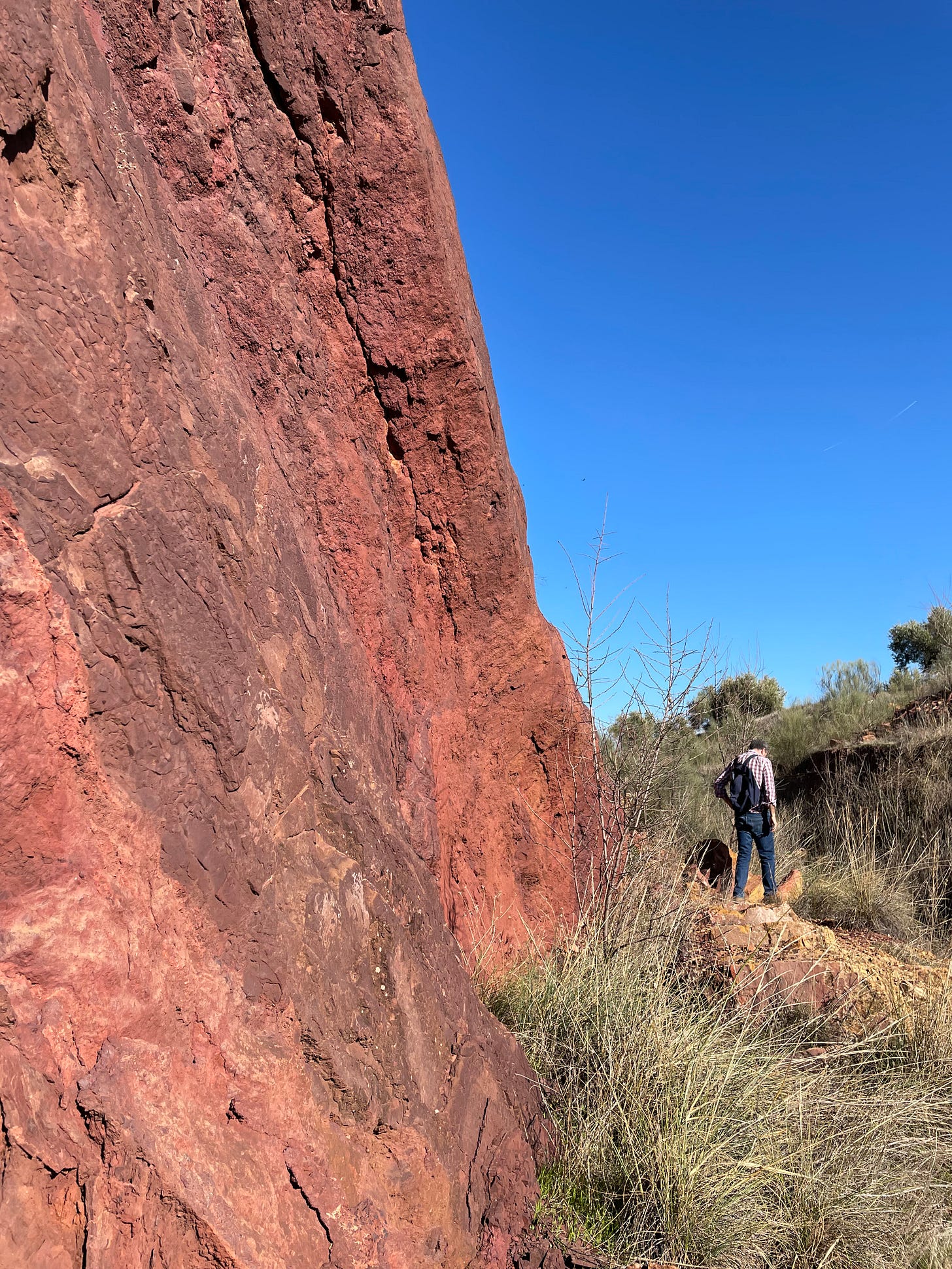Intuition vs. science
Where does knowledge come from? Are there some ways of learning that we might be overlooking and could be valuable in research?
One day, I was on a walk with a good friend of mine, when I told her that I was becoming interested in tarot symbolism, jungian archetypes, and so forth. She said “I am so glad you´re finally leaving enlightened capitalism for esoteric feminism”. We had a good laugh after that, but I have found myself thinking about this sentence quite often in the last years. Especially since I started looking into academic research, and reflecting on what types of knowledge are considered serious and legitimate, and which ones are not.
When I first started to pursue the idea of a PhD about pigments, I contacted a few professors, and read about research projects, their topics, their approach, their methods, etc. Archeology is heavily based in science and the humanities are almost absent in these studies. I quickly realized that researchers who shared my perspective (a perspective more embedded in the humanities) were very scarce. My ideas and hypothesis were somewhat based in my own intuition and experience, the connections I had made working in museums, and my interactions with pigments and color. You couldn´t exactly prove them in a lab.
How was I to convince anyone about my perspective then? Was intuition even considered a valid source for a hypothesis in academic research? I couldn´t prove what I thought through the typical archeological methodology, because it was based in experience and personal reflections. However, I felt in my bones that my ideas were good and worthy, and I couldn´t find anyone out there approaching the topic from my point of view, so I knew I had something interesting to offer. How to reconcile this certainty with the way academic research works?
Intuition as a “feminine” quality
One of the problems we face when talking about intuition, is that it has historically being considered “feminine”. I think this is false, since intuition is something everyone possess.
Intuition is mostly a subconscious process: we constantly gather information through our senses, something like raw data, and our intuition sorts through it all to organize it, understand it and look for patterns. When there is a pattern worthy of notice, our intuition gives us the formed answer to a question we didn´t know we´ve asked. It´s this feeling when something suddenly clicks in your mind, but you couldn´t say exactly where it came from.
You know these moments when you have a gut instinct that a person or a situation aren´t safe? Apparently, there is nothing wrong, but there is this feeling in the pit of you stomach that you shouldn’t trust them. This is a perfect intuitive moment, an animal sense alerting you that something is wrong here, even if your logical mind couldn´t pinpoint what it is. You know it, even if you don´t know how you know it. This is how intuition feels, like something important that you can´t explain, but real nonetheless.
Since this kind of information it´s hard to prove, it has been viewed as something untrustworthy, or even closer to witchcraft when it came from women. Anything deemed irrational and emotional was (is?) disregarded as nonsense in the best case, and as suspicious and dangerous in the worst.
The fact that intuition is considered more of a feminine quality comes from the way we learn gender roles. Women are taught to express their emotions more freely (except when it´s anger), to cry, to empathize, to help and serve others, and to be in touch with their feelings. Men and boys, on the other hand, learn quickly to shut down this aspect of themselves, to appear unemotional and rational (except when it´s anger, that in men is the only traditionally allowed display of emotion), because that´s what we categorize as “masculine behavior”.
What´s the consequence of this gender socialization? That characteristics traditionally associated with women, like emotions and intuition, are considered lesser, while the ones traditionally masculine, like rationality and logic, are viewed as superior and more trustworthy.
Let me assure you, we all have the same capacity for feelings, intuition and logic, regardless of gender. It´s only the way we are taught, the characteristics that we are encouraged to reinforce and suppress in ourselves, that make a difference.
Intuition as a source of knowledge

Now for the second part of my argument: this is the reason why science is heavily “male”, not only in the number of men working on this field, but also in the way research is approached — from a more “masculine” understanding of knowledge. The fields that rely on logic, data and numbers are considered more important, and their findings unquestionable. Scientists are as biased in their work as anyone else, but they usually operate as if what they say is simply the truth.
One example can be easily found in the study of human evolution. For a while now, there have been clues that other hominins beyond Homo sapiens had certain symbolic abilities, like Neanderthals. Many scientists have ignored this possibility because they didn´t want to accept that Homo sapiens were not the only ones who had this capacity. Many people still deny it. Is this logical? No, they have certain beliefs about the topic, and those beliefs are stronger than the proof in front of them.
Meanwhile, other fields like the arts and the humanities, are considered something subjective (not based in the truth), populated by women, and generally useless and unimportant. I have lived through many law reforms where politicians have tried to wipe off music or art from the school curriculum, but not once have they tried to remove physics or chemistry. The subtext is that science is essential, while the humanities are disposable.
I am not saying that science is not important (or interesting!) but this way of categorizing what it´s the superior knowledge is damaging. The arts and the humanities work on intuition and emotions. You cannot understand a Lee Krasner painting with math, you just can´t. But you can learn something from it. You can experience it, and you can create infinite connections and access knowledge through your senses, your memory, your intuition and your emotions.
The humanities have been a part of us for a long, long time. They cannot be inconsequential, even if they don´t operate on logic. There are different types of knowledge, useful for different aims and results, and they are all valuable.
Studying pigments and color through intuition
My hypothesis about pigments and colors started as an intuition way earlier than I had the academic knowledge to back it up. I became obsessed with pigments and dyes, and started reading everything I could find about the history of colors. After some time, a pattern started to arise in my mind. I realized that every human civilization under the sun had spent a huge amount of time and effort on acquiring colorants. This always made me wonder: Why was that? Color was nice, sure, but it wasn´t such a fundamental good, was it?
Time went on, I kept learning, I started teaching about pigments myself, and I kept finding this pattern that color had been essential in some way I couldn´t clearly identify. Until one day, when I read an article about the history of red. It started explaining that the first signs of ochre use could be traced back to 500ka ago. Half a million years ago, when modern humans didn´t even exist yet, some other hominins already used pigments.
This article blew my mind. I think this might have been one the most exciting “click” moments I´ve experienced. Everything I´d ever learned and seen about color suddenly coalesced into the clearest picture: the answer to my question was in human evolution. I had this intense realization that color was fundamental for humans because something had happened during the formation of our cognition that was interwoven with pigments.
I arrived to this hypothesis solely observing patterns. I didn´t know anything yet about archeology of humans origins, or how the theory of material engagement explained exactly what I had known intuitively for years without having a theoretical framework to describe it. I simply knew it through my intuition.
It wasn´t only an intellectual conclusion. I had started going to an ancient ochre mine close to where I live, taking some rocks and turning them into paint. Going through this process myself was also an important experience, an embodiment of what it means to work with pigments the way people from the past did. This information is valuable too, and again, hard to explain through classic academic data. It is knowledge that you can only get through your body and senses, and yes, subjective. But subjective doesn´t mean false.
The overall idea is that there are many ways to access knowledge, and some of them are not taken into account in research. Academia can have a very narrow perspective sometimes, but intuition doesn´t need to be opposed to science. It can be just another part of the process. In fact, I bet many science discoveries were made exactly like this. Remember Archimedes saying Eureka!? A perfect intuitive moment in the history of science.










Your research is truly fascinating. I had never stopped to think about how pigments have been part of human history for thousands of years. It's incredible how they’ve managed to endure through time, still visible today on ancient rocks.